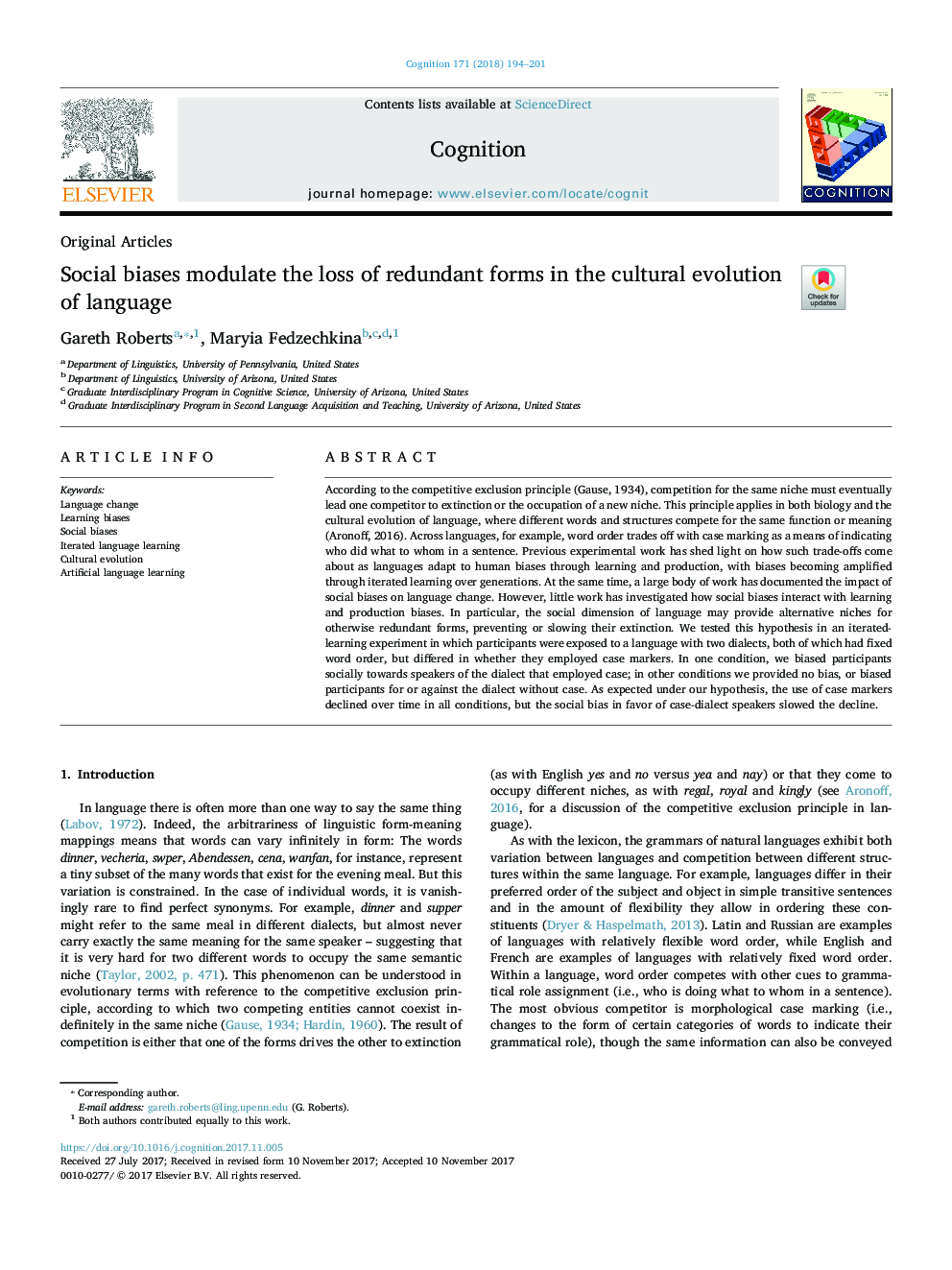| کد مقاله | کد نشریه | سال انتشار | مقاله انگلیسی | نسخه تمام متن |
|---|---|---|---|---|
| 7285645 | 1474096 | 2018 | 8 صفحه PDF | دانلود رایگان |
عنوان انگلیسی مقاله ISI
Social biases modulate the loss of redundant forms in the cultural evolution of language
ترجمه فارسی عنوان
تعصب اجتماعی، از دست دادن اشکال فرعی در تکامل فرهنگی زبان، مدیتیشن می دهد
دانلود مقاله + سفارش ترجمه
دانلود مقاله ISI انگلیسی
رایگان برای ایرانیان
کلمات کلیدی
تغییر زبان، تعصب یادگیری، تعصب اجتماعی، یادگیری زبان مبادله، تکامل فرهنگی، یادگیری زبان مصنوعی،
موضوعات مرتبط
علوم زیستی و بیوفناوری
علم عصب شناسی
علوم اعصاب شناختی
چکیده انگلیسی
According to the competitive exclusion principle (Gause, 1934), competition for the same niche must eventually lead one competitor to extinction or the occupation of a new niche. This principle applies in both biology and the cultural evolution of language, where different words and structures compete for the same function or meaning (Aronoff, 2016). Across languages, for example, word order trades off with case marking as a means of indicating who did what to whom in a sentence. Previous experimental work has shed light on how such trade-offs come about as languages adapt to human biases through learning and production, with biases becoming amplified through iterated learning over generations. At the same time, a large body of work has documented the impact of social biases on language change. However, little work has investigated how social biases interact with learning and production biases. In particular, the social dimension of language may provide alternative niches for otherwise redundant forms, preventing or slowing their extinction. We tested this hypothesis in an iterated-learning experiment in which participants were exposed to a language with two dialects, both of which had fixed word order, but differed in whether they employed case markers. In one condition, we biased participants socially towards speakers of the dialect that employed case; in other conditions we provided no bias, or biased participants for or against the dialect without case. As expected under our hypothesis, the use of case markers declined over time in all conditions, but the social bias in favor of case-dialect speakers slowed the decline.
ناشر
Database: Elsevier - ScienceDirect (ساینس دایرکت)
Journal: Cognition - Volume 171, February 2018, Pages 194-201
Journal: Cognition - Volume 171, February 2018, Pages 194-201
نویسندگان
Gareth Roberts, Maryia Fedzechkina,
